A new media narrative is unfolding, replete with statistics all seeking to provide evidence that Apple's success with native apps is over. There's no clear agreement on what exactly will take over— Chat Bots, Voice Assistants, the Web, Augmented Reality or some new and unknown successor— but it is clear that the loser must be Apple. It has to be, because it's desperately needed by Apple's rivals.
No Mr. App, I expect you to die!
Last month, Peter Kafka gravely warned via Recode that "the app boom is over." The main data point surfaced by Kafka was that users— wait for it— are not still downloading apps they already had last year, such as the widely deployed Facebook and Messenger (below).
Kafka painted out a picture of slowing app downloads (at least in the U.S.) and observed in conclusion that "you can still break through the saturated app market, if you are very very very lucky, and good. But the odds are stacked against you."
Of course, that's the case in virtually every business. More specifically, it's certainly the case on the web, where content providers are struggling in an emerging new era of ad-blockers. And unlike Apple's iOS Apps, web apps have never really been very profitable for developers outside of a very few success stories (such as Facebook, which is now gaining far more success as a mobile app).
But let's ignore that reality and fixate on how difficult it is to earn big money by speculatively inventing new App Store titles. That's what Casey Newton wrote this spring for The Verge, in a profile of Pixite (a cash-strapped, small— but award winning— developer of photo editing apps) ominously headlined "Life and death in the App Store," and featuring images of a skull and a dreary sales chart plunging into red.
"Last year downloads flattened," Newton wrote, "and Pixite's revenues plunged by a third, to $629,000. Suddenly, a company that needed to bring in $2,000 a day to break even found itself making $1,000 or less. Pixite has no reserves of venture capital to fall back on; aside from a $50,000 seed investment from a Carnegie Mellon fund for alumni entrepreneurs, Pixite has funded itself."
Enter the hopeless, demoralizing graveyard... if you dare!
A couple weeks ago, Alex Austin wrote "The Apple App Store graveyard" for Tech Crunch, which focused on problems related to app discoverability. Essentially: there are so many apps out there that it's difficult for any new ones to stand out and get noticed (and downloaded). Sort of like web pages. Or candy bars. Or new cars. Or anything else that requires advertising.
"People just don't seem to have the same excitement lately about Apple's App Store or the Google Play platform. The air of hopelessness that surrounds the mobile app ecosystem is obvious and demoralizing," he wrote, with first hand experience as a developer.
Note that the headline portrayed the problem as unique to the App Store, not a problem for all mobile app platforms, or even all software, or even all products sold in any market. Bottom line: if you create a product, you have to actively sell it or keep developing it or it dies on the vine. Shocker!
Back in 2014, Dan Frommer wrote for Quartz an article that helped kickstart the App Store Death Knell, sensationally titled "Most smartphone users download zero apps per month," with the subhead "Can't give 'em away."
Curiously, that was published during the time that the aforementioned small developer team at Pixite reported having over three million downloads annually— and it was not "giving them away"— those app downloads were bringing in nearly $1 million in annual revenues for the company.
Frommer's headline was extracted from data compiled by comScore, which actually stated that while most (65.5 percent) of U.S. smartphone users reported downloading "zero apps" in a typical month, around a quarter were regularly downloading 1-3 new apps each month and another nearly ten percent were downloading four or more new apps each month. There is no average customer. Some buy a lot, some buy nothing. Just ask Google about Android and iOS.
The story of my death has been greatly exaggerated
That Quartz headline continues to be regularly cited as evidence that 'nobody is downloading apps anymore,' even though Apple's App Store downloads have grown dramatically over the last year and a half since the story was first published.
For fiscal 2015 (which ended about a year after Frommer's article), Apple reported that its Services business segment (dominated by App Store sales) grew by 10 percent to become a $20 billion annual business— the company's third fastest growing business segment that year after iPhones and "Other Products" including the new Apple Watch and Apple TV.
During Apple's most recently reported "very bad / second best quarter in history" ending in March, "Services" grew by 20 percent, making it now a nearly $6 billion business per quarter. That Services growth was specifically detailed in Apple's 10Q as being "due primarily to higher App Store, licensing and AppleCare sales."
Look at one of the biggest sensations to hit mobile tech lately: Pokemon Go. It's an app. And it's great at exploiting what apps are best at: providing new functionality and applying novel technologies— like Augmented Reality— to add value to existing hardware devices.
Speculation built atop statistical fallacy
Never mind that the App Store is somehow generating billions of dollars for Apple— and increasing even more billions for iOS developers collectively. Now that we have a factoid suggesting that apps are dead, we can invent a successor!
How about messaging bots? Last September, TechCrunch published "Forget Apps, Now The Bots Take Over," an article by Beerud Sheth. Of course, when you're the chief executive of a messaging service, every chance to pound a nail may be the reason you swing whatever you want to call your hammer.
"As the number of mobile apps increases while the size of our mobile screens decreases, we're reaching the limits of the mobile 'OS + apps' paradigm," Sheth, the co-founder and chief executive of Teamchat wrote. "It's getting harder to download, set up, manage and switch between so many apps on our mobile device. Most mobile users only use a handful of apps every day."
Never mind that a handheld mobile device can literally only supply a "handful of apps" by definition or that "apps" are not really even a tangible commodity that occupy a certain volume of space; let's instead take issue with the idea that its "getting harder" to download, use and switch between apps.
That's clearly not true at all. Every new version of iOS has made downloading and switching between apps easier, if for no other reason than the very cynical idea that Apple wants users to keep inflating its Services profits by buying and downloading more apps. It even shamelessly advertises how great apps are.
You might call it a capitalist motivation, sort of like a messaging executive writing about the critical importance of messaging bots. The article did contribute an interesting graphic however (below), depicting the OS (apparently iOS) as a platform shrinking in relevance while third party messaging platforms become the new Thing on top of it.
The graphic reminds me of how 1996's Netscape's web browser became more important than Win32, at least until Microsoft introduced Internet Explorer and tied the web to Win32, reverting things to the point where web apps were effectively Windows apps.
The necessary allure of messaging apps
It is true that messaging is a primary use of mobile devices today. Some of the most popular and successful apps are actually related in some way to messaging. There's Facebook and its Messenger; the WhatsApp title Facebook paid billions to acquire; Microsoft's Skype and its newly acquired LinkedIn; Google's various chat clients; Twitter; WeChat and other messaging platforms that are incredibly popular in China, and of course Apple's built-in iMessages that most premium smartphone users have installed on their phone by default.
Why are Facebook, Google, Microsoft, Twitter, all of their Chinese analogs— and this TechCrunch author/Teamchat executive himself— all focused on messaging as a platform? Because it's the only shot they all have at replicating some fragment of success of the native iOS App Store.
Facebook spectacularly failed in repeated attempts to take over Android with initiatives like the Facebook Phone and Android Home. Google's Android is contributing very little from actual app sales; mobile remains a small fraction of the company's revenues, despite its stewardship of the largest mobile platform by units. Microsoft has been completely shut out of the mobile platform game over its decade of attempts to woo users with Windows Mobile, Windows Phone, and now Windows 10 Mobile.
Chinese chat clients are working to build platforms on top of Android, given that they have so little ability to control the commodity Android platform itself. These efforts have been working out to some extent, but none have developed into a +$20 billion a year business like the iOS App Store.
Competition by commodity: making rivals' products compete with cheap or free
The best way to threaten your competitors' success is to take whatever they make their money on and imply that it's worthless by turning it into a commodity. Microsoft did that to the Macintosh by making PC hardware a cheap commodity paired with its own 'very valuable' software; Apple retaliated by refocusing on its premium hardware and giving away its software as a 'commodity OS' for Mac hardware.
Google followed Microsoft's strategy with Android in making hardware a commodity, and Apple fired back with free iOS downloads including "free" Maps, Siri search and productivity apps. With iOS 10, Apple is refocusing the potential of messaging apps as being another new flavor of the venerable iOS App
Today, everyone outside of Apple is trying to make the mobile iOS platform a commodity while focusing attention on their own sub-platforms, prominently in the realm of messaging apps that can host app-like "bots" of their own.
What's new is that with iOS 10, Apple is refocusing the potential of messaging apps as being another new flavor of the venerable iOS App. The platform of distribution— and the App Store itself— remain essentially free to users. Virtually all iOS 9 users will be able to upgrade to iOS 10 for free.
Why Bot when you can App?
The idea of a bot being a textual, conversational chat service, or alternatively a voice-based assistant service, or even an app-like feature built into a messaging platform (common in China, where apps like WhatsApp can book you a ride or sell you products) is not something Apple is ignoring.
As the most commercially successful mobile app platform vendor, Apple has deep insight into how people are using iOS, on a global level. While everyone else was working on speculative, potential messaging platforms— or paying massive billions to acquire existing ones— Apple was working to develop iMessages as a secure messaging platform that bridges SMS telephony devices and IP-based desktop Macs. It now has a billion users who see iMessages by default.
Thanks to the hijinks of the American FBI and the British Parliament, Apple's iMessages platform has been broadly— incessantly— advertised in the media as being a very secure, encrypted messaging platform. Users know when they get a green bubble that they're talking with an Android user, and that person won't be able to benefit from some of the services— including encryption— of native iMessage users on iOS or a Mac or Apple Watch.
When they get a blue bubble, they know they're dealing with another iPhone user, and that that user has access to the same apps. You can share Apple Music, Apple News and Keynote documents with them. Your conversation is encrypted. And you can send them Live Photos or record a real time video without wondering if they'll be able to see it.
That digital divide is about to get much more obvious with iOS 10. iMessages is getting animated effects, WeChat-like stickers, Facebook-like responses (below), bot-like iMessage Apps and Apple Watch-derived Digital Touch sketches. And none of it will work on Android.
Apple will also have an iMessage App Store right in the app, creating a significant new opportunity for any app developer who can target the new sub-platform on iOS that looks remarkably similar to the TechCrunch messaging bots graphic cited above.
What if the Bot that Apple's critics all hoped would crush Apple's App Store ended up being just another iOS App?
Messaging Apps for the Enterprise
While Apple's iOS 10 promotional graphics look like they're all aimed at pre-teens— from a laughing Donald Duck sticker to an "ice cream cone creation" conversation app to the frivolously fictitious "UnicornChat" depicted in the company's WWDC videos— one of the real targets of iOS 10's new iMessage Apps may be far more serious: the enterprise.
Facebook, Microsoft, Google and everyone else in the messaging platform business would love to get their tentacles into corporate circles. However, only Apple has really established that its iMessages is a fully encrypted platform (for years), and that it has no real interest in harvesting users' conversations to look for valuable data it can sell or use for marketing purposes.
The Electronic Frontier Foundation, American Civil Liberties Union and security experts have been vocally patting Apple on the back for its privacy and security stance. Enterprise users pay attention to such details.
The iMessage Apps that Apple outlined in iOS 10 appear to have substantial potential as a business platform. All sorts of existing iOS apps— whether public App Store titles, specialized enterprise apps created by firms like IBM, or in-house corporate apps— can make use of the iMessaging platform to provide secure communication-based features. An app might enable employees to collaboratively check off a series of approvals right within iMessage, or facilitate a sophisticated quote negotiation workflow with a client.
It wasn't a secret that Instagram copied Twitter's Vine idea for video, or that Twitter's Periscope was copied by Facebook Live, or that Snapchat is trying to muscle into Facebook's territory with Memories, so how is it really hard to imagine that the world's largest and most successful mobile app platform vendor is literally sucking up all the good ideas related to messaging platforms and making them native to iOS— and newly useable to the audience that Apple has, but that most mobile platforms lack— enterprise users.
Apps outside of Messaging
Beyond the chat-based bots that Apple has domesticated with iMessage Apps, the company also unveiled a new App Extension mechanism for third party expansion of the domains of functionality available to Siri. This is a parallel effort to also make voice-based bots a native part of iOS.
This same Intents mechanism used by Siri is also driving new expansions of Maps Apps (below), and of new Advanced Notifications that present both glanceable Widget banners and actionable responses that behave similar to iMessage Apps.
Apple has expanded the iOS App beyond the familiar grid of app icons, without diminishing the Home page in the process. All of these are examples of new opportunities for third party developers on iOS. Apple's interests are closely tied to those of its third party developers. Outside of Apple's ecosystem, that's not as clearly the case.
Outside of iOS, Apple has also introduced efforts to make the app central to television with Apple TV, and— with watchOS 3— to make Apple Watch a functional platform for third party apps, rather than mostly an activity tracker, a notifications band and first party app accessory to iPhones.
It should be no surprise why Apple is putting so much emphasis on apps. The marketing of apps is a major component of one of the company's fastest growing segments. And beyond Apple's App Store revenues, the use and popularity of native iOS, tvOS, watchOS and macOS apps expands ecosystem interest in Apple core profit center: selling hardware.
Apple's interests are closely tied to those of its third party developers. Outside of Apple's ecosystem, that's not as clearly the case.
Google doesn't really get apps
On Android, Google makes its money from advertising, which can help to monetize apps. But the ad business doesn't depend on apps. In fact, Google still makes more money from web-based search ads. Additionally, one of the company's primary innovations at this year's IO was Instant Apps, essentially an effort to replace downloadable apps with streamed app components.
That solves a problem for Google but deemphasizes the value of apps on Android to serve as visible brands. Like most of what Google does, Instant Apps serve the needs of Google, not of Android hardware buyers or even third party developers (none of which have ever really asked for a way for users to use their apps without downloading them).
Early on, Google hoped that mobile web apps would be good enough on Android, then introduced ChromeOS as a new netbook platform that was based entirely on web services rather than local, native apps. ChromeOS "apps" are effectively web pages. Even most Android apps are essentially Java applets rather than being native code software.
In a world dominated by native apps, Google's core competency in search and paid placement fades in relevance. Google knows that because it sees this every day in the mobile market. Google's contempt for apps shows up in every Android screen shot where third party apps play second fiddle to the Google search bar, widgets and other chrome.
Microsoft really doesn't really get apps
Counterintuitively— despite significant experience as a major software developer— Microsoft seems even more clueless about mobile apps than even Google. Its first effort at a mobile platform attempted to shoehorn the Windows PC desktop into a smaller screen, but after being trounced by iPhone, Microsoft eventually fired back with Windows Phone, using marketing that promoted a streamlined experience where you didn't really need apps and weren't tied to your phone by the incessant distraction of apps.
Apps are bad, m'kay?
While it tried to portray the popular attraction and allure of iOS apps as a being a modern day "Reefer Madness," it also created a novel interpretation of apps for Zune / Metro / Windows Phone that replaced the app icon with "Live Tiles," an animated block that served up live data, a sort of animated widget.
While Microsoft's fans crowed about how genius it was to replace icons with Live Tile animations, for app developers it meant something else. Instead of getting a prominently placed iconic ad for their software on users' home screens, begging to be used, they now got their product hidden behind some flashy animated visualization.
Imagine if Microsoft built a clone of the Mall of America, but then required all of its future tenants to replace their typical corporate branding with flashy HDTVs that depicted constantly animated visualizations of data related to their store. Instead of using colors that reflect their own brand, they'd also need to use Microsoft's colors related to Windows. How many businesses would move in?
Such a place could be portrayed in futuristic science fiction. But the reality is that retailers, just like app developers, want users to see their own corporate branding. Unlike Windows Phone, iOS presents apps with a recognizable, easily targetable icon representing the developers' product.
Microsoft thought third party apps were there to advertise its platform, not the other way around.
Why Apple really gets apps
Apple gets apps because Apple invented the application. Apple didn't actually invent the mobile app; before iPhones or even iPod Games there were a variety of mobile platforms pioneering various elements of the modern app: Nokia did early work on securely signed code; Palm and Danger helped popularize the idea of a market for apps. Of course, ten years prior to the first smartphones, Apple's early Newton MessagePad mainstreamed the idea of a home screen grid of app icons.
But before all that, back in the early 1980s, Apple looked at the current state of software programs and invented new concepts and terminology to make computing easier to use. In created standard conventions for system-wide copy and paste, printing and working with files; prior to that, every PC program had its own unique ways to open a file and hand rolled its own support for printing.
But beyond standardizing the conventions of the desktop, Apple also created Human Interface Guidelines that introduced new, more user-accessible terminology. Rather than referring to software code packages as "executables" (still enshrined in Windows' use of .exe) or even "programs," Apple coined the term "application," as in something you'd use to apply changes to a file (which Apple renamed "document") before saving it to a subdirectory (which Apple rechristened as "folder"). PC users actually resisted the use of those new terms and conventions, before Windows copied everything and presented it as Microsoft's own work.
Apple clued into the value of "killer-apps" and their ability to sell hardware early on (as depicted in the internally commissioned "Software Sells Systems" poster below). Apple II unit sales exploded after a third party developer invented the idea of the spreadsheet with VisiCalc. Mac sales began to take off after Adobe and others built the tools that enabled Desktop Publishing. Microsoft assembled a portfolio of Mac apps it called Office, stoking additional demand for graphical computing.
Apple's decline during the 1990s was not due to its failure to build compelling hardware as much as it was its inability to attract developers building compelling apps for its platforms (both Macs and Newton tablets). The company's big turnaround came when Steve Jobs focused on expanding software support: first from Microsoft's Office in 1997, then across a growing base of the company's own first party apps ranging from iTunes to Keynote to Final Cut Pro.
In 2006, Apple introduced iPod Games that could be sold and distributed via iTunes just like music or movies. When it introduced iPhone, third party developers were upset that it didn't ship with a Software Development Kit for building native apps. Less than a year later, it got one. These new iOS apps quickly outpaced all of the other media being sold through iTunes.
In 2010, Apple adapted apps for iPad, creating the only tablet with truly custom software— compared to Windows Tablets running programs designed for a conventional PC, or Android tablets running stretched versions of apps intended for a smartphone.
Apps get Extensions, not Components
Apple's deep understanding of the value of third party support in apps is also evident in its efforts (since 2014) to build more ways for apps to enhance the value of iOS, via App Extensions.
Many years ago, Apple saw big, monolithic Mac applications like Word and Photoshop as a threat to small developers and innovation in general. Working with partners and developers, Apple created a complex document format designed to hold many types of different data that any program could interact with, and also devised a component software architecture that enabled small developers to create functional blocks of software that could extend the features of other programs.
Called OpenDoc, the initiative was a major failure that effectively derailed Apple's Claris software subsidiary and nearly destroyed the entire company. It turned out that developers didn't want to build tools hidden away in some other app, in large part because customers didn't want to buy apps feature-by-feature. The idea of component software imploded.
After rebuilding the Mac platform on more conventional terms with familiar software titles, Apple introduced iPhone as a handheld computer that could run simplified software titles. Due to the constrained memory, computing power and other resources of the original iPhone, Apple exerted significant limitations on what apps could do on the platform.
As iPhones grew more sophisticated, Apple exerted more, not less, control over what apps could do. It limited access to Location Services, the camera and microphone without user permission, and required that all apps be sold through a single market place where they could be verified as legitimate and malware-free— and pulled from distribution if necessary.
While initially widely ridiculed, Apple's App Store approach was clearly superior to other platforms where "side-loading" and permissive download sharing have resulted in a mess of spyware and other malware and where rampant piracy has erased any real commercial motivation to building native software outside of adware. Apple is expanding the potential opportunities for third party developers with App Extensions on the platform that's already the best for doing business.
While OpenDoc killed developer interest by breaking apps into building blocks that were impossible to sell, the App Store— and its focus on building innovative, simple software— created the largest market for consumer software ever by making apps powerful enough to accomplish valuable tasks on their own.
Apple is now working to give apps new abilities to interact with specific system-wide features via "extension points." Third parties can exploit these Apple-defined mechanisms to create new app experiences: third party keyboards, photo editors, social sharing services, audio units, Safari content blockers— and new in iOS 10— support for new, developer-branded extensions to Siri, Maps, Notifications, VoIP call handling and even CarPlay support.
Rather than being OpenDoc-like components, iOS App Extensions are distributed with the vendor's app, and follow guidelines to prevent security issues and system instability from becoming problems. As a result, Apple is expanding the potential opportunities for third party developers with App Extensions on the platform that's already the best for doing business.
If there's a Bot War coming, it sure looks like Apps are going to win it.
 Daniel Eran Dilger
Daniel Eran Dilger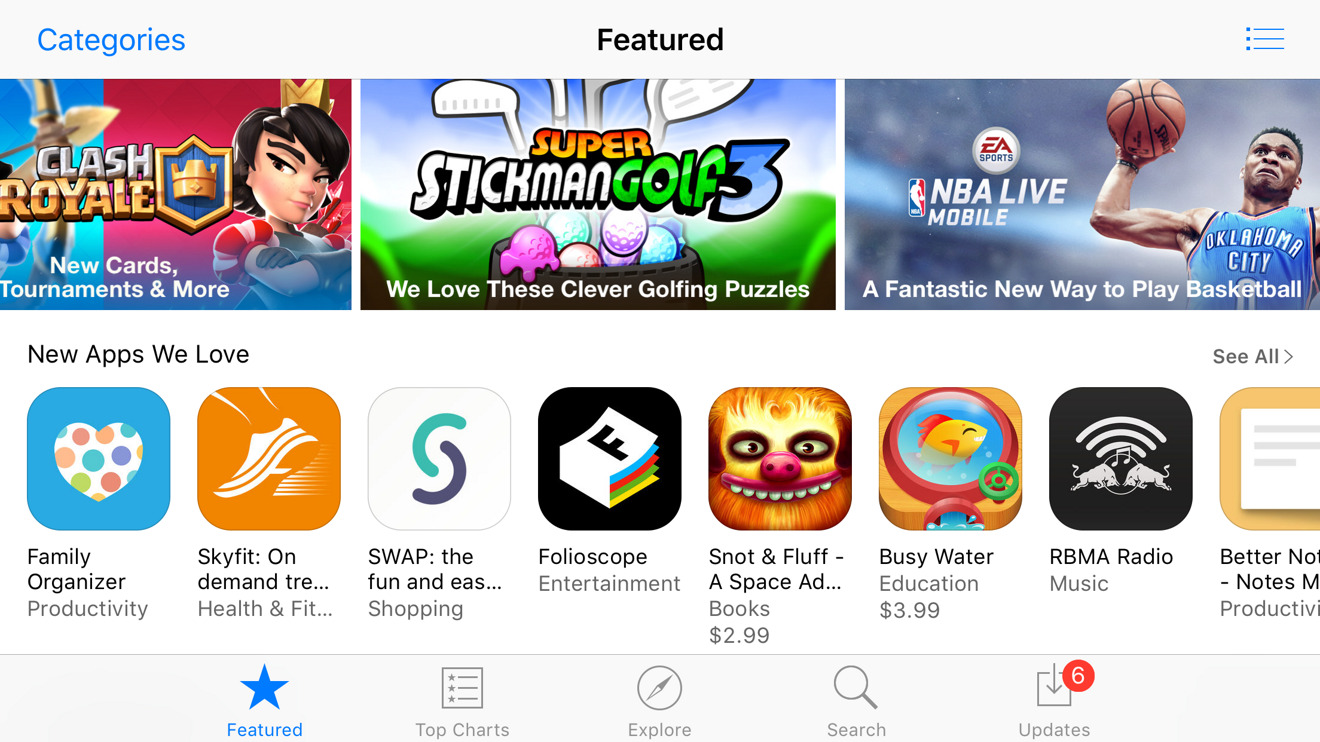
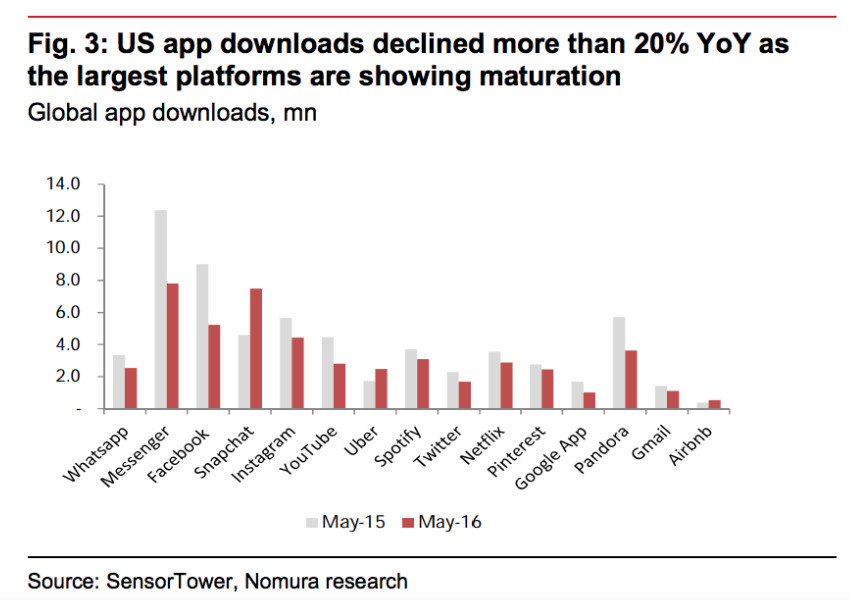
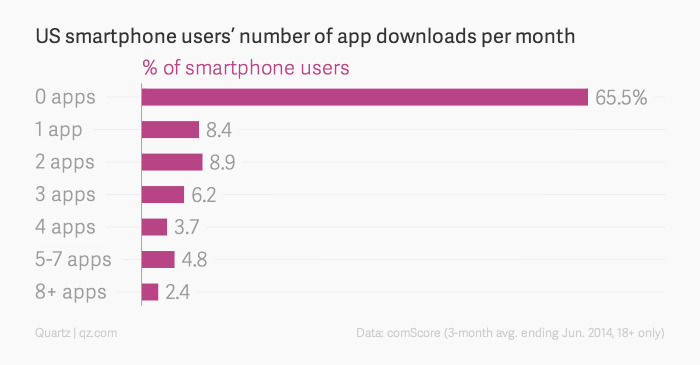
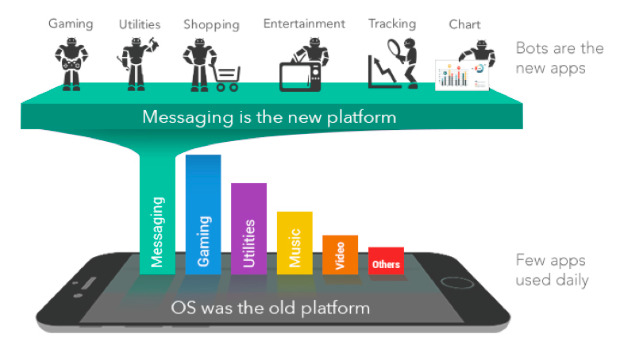
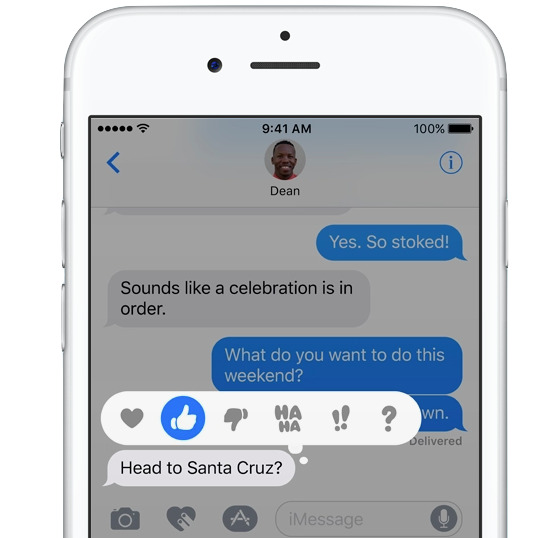
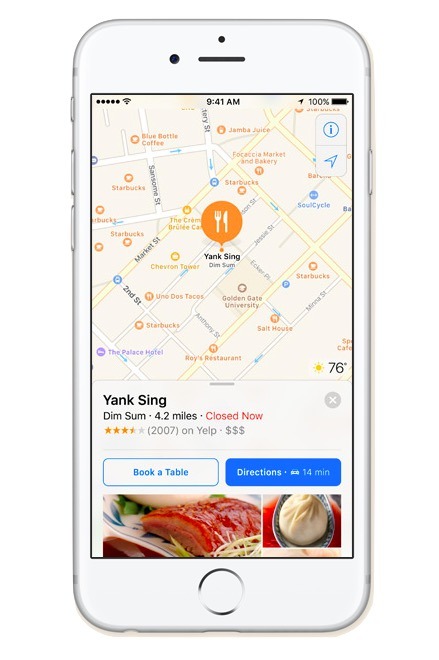
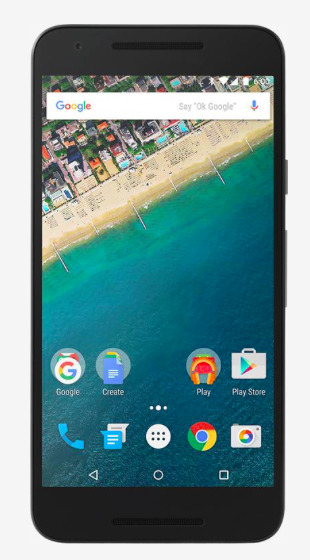
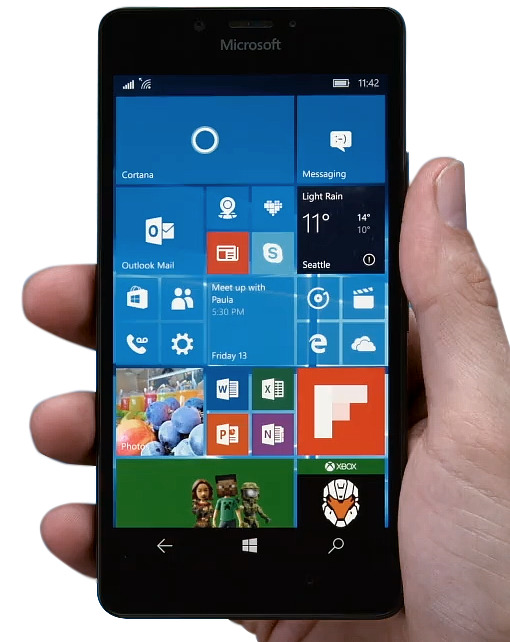








-m.jpg)






 Chip Loder
Chip Loder
 Marko Zivkovic
Marko Zivkovic
 Malcolm Owen
Malcolm Owen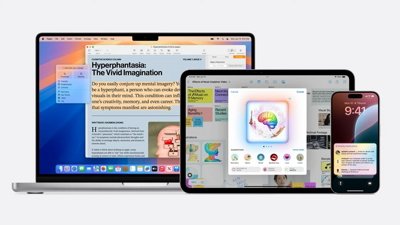

 William Gallagher
William Gallagher
 Christine McKee
Christine McKee
 Andrew O'Hara
Andrew O'Hara
 Andrew Orr
Andrew Orr

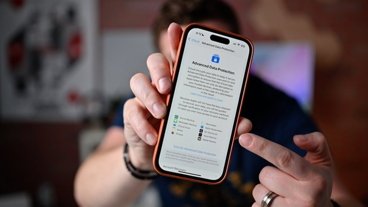


-m.jpg)




42 Comments
These rants get more nonsensical and pathetic every time one is posted. The app boom is over, just as surely as the Wii shovelware train eventually came to an end. There's simply too much garbage in the Store now, and Apple won't do the needed purging. Will there be the occasional hit? Sure, but not like the old days.
I mean, this entire rant contradicts itself multiple times.
So the shorter version is Apple is all about apps not bots therefore apps are good, bots are bad and apps will win out in the end.
good article. my only regret is that apple is more shareholder focused and less customer focused.